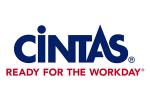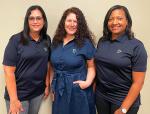CHICAGO — Laundry and linen services, like most businesses in general, are still struggling to find employees after the past few years.
Many strategies have been suggested and put into practice, but one that might be prime for laundry operations today is the use of mentoring programs.
Yvette Lee, an HR knowledge advisor at the Society for Human Resources Management (SHRM), says that mentoring is used to help employees learn, grow and gain knowledge in their field.
“You see it more often when leadership wants to grow other potential leaders within the organization,” she points out.
“The leadership is seeing that somebody has high potential, and they want to have somebody mentor them so that they have a sounding board, somebody who’s had a little bit more experience in that particular position or industry, things of that nature.
“Usually that’s where you see mentoring utilized.”
Mentor programs can help laundry and linen services better train, promote and retain employees throughout the organization.
In July 2022, Prudential Overall Supply, a provider of work wear and safety uniforms, career apparel and casual wear, cleanroom garments and related services headquartered in Irvine, California, launched its Mentoring Achieves Pathways to Success (MAPS) program.
“It’s the structure that we’ve introduced,” says Michael Flores, vice president of human resources. “We launched it last year as a formal program, and we just completed our first cohort of this. Right now, we are kicking off cohort No. 2.
He says that, currently, it’s a limited program for a selection of the company’s employees.
“For the broader population, we have more of like a buddy system, and that’s pretty informal, but for any production employees, route drivers, we will give them an internal buddy for them to serve as an internal peer, who is not their manager, who will give some mentoring,” Flores points out.
“But for our formal mentoring, that’s really our MAPS program.”
MENTORING IN PRACTICE
Lee shares that there is likely more groundwork than some employers may think is necessary if they want to have a successful mentorship program.
“For example, they’re going to want to look at defining what’s the reason for the program,” she says. “Having that information can help get buy-in, especially from leadership, as opposed to saying we want to do this—explaining the why, what it’s for, what do they hope to see as a result of having a mentoring program.
“The other thing is finding the right person to be in charge of the program. You want to have somebody who’s enthusiastic about having the program and seeing a value in the program.
“If you just kind of hand it off to somebody who doesn’t really see the need for it, sometimes you can see those types of programs falter over time and it’s not as productive as employers may hope.”
Setting the goals for the program involves aligning what the objectives are for the program regarding the business, Lee says.
“Whether that be you want to see more of an influx of individuals being interested in more opportunities within the organization, that could be a goal,” she shares.
Starting small may be helpful, Lee points out. That allows for training—not just for the mentors, but also for the mentees.
And she stresses that it’s key for the success of the mentoring opportunity to find mentors who are willing to commit to the program. Mentors need to see the value of the program.
“You want to have people who are enthusiastic, and they’re going to be committed and not just say, ‘Oh, I always don’t have time for this,’” Lee points out. “Those are usually not the individuals that will be great mentors.
“And you also want to look at what type of people you want to mentor. That’s another aspect of it.”
Another key, according to Lee, is to provide ongoing support.
“Mentor and mentee usually communicate about an hour a month on average, and they goal set when they meet,” she says. “What are some of the challenges you may be experiencing? How can I help you with these challenges? Do you need to talk through scenarios? Do you feel you need to get more education on some things?
“Here are some books or some articles you might want to consider. Have you thought about building your network? Those types of things to provide ongoing support.”
Communication is vital to the success of a mentor program.
“Some of the things that I have seen in the past, especially talking with other HR professionals, is don’t assume once a program is already set up that everybody knows about it,” shares Lee.
“These types of programs need to be marketed. They need to be monitored. That’s why it’s important to have a person who’s enthusiastic about having the program and being in charge of the program.
She points out that there will be some “maintenance” that goes along with having mentor programs.
“Sometimes a mentor has to say, ‘This is a great relationship; however, I’ve taken on XYZ roles, so now I’m not going to have as much of an opportunity to dedicate myself to this. Maybe it’s best we start looking at somebody else,’” Lee shares as an example.
“Or during the conversations with the mentee, they ascertain that maybe an individual has different aspirations within the organization and there may be somebody better suited to be that person’s mentor.”
Finally, she says it’s important for a business to have realistic expectations for its mentor program.
“Because, again, it’s not one person’s full-time job,” says Lee. “The mentor and the mentee still have their own jobs that they’re going to do. So, saying to somebody, you’ve got to meet every week, depending upon the situation, could become cumbersome.
“The idea is that you want people to have the opportunity to learn from one another because mentors have learned a lot, too, from having these types of programs.
“They’ve been able to reflect when I was in this type of position, what did I do? Would I have done it differently back then? It gives them an opportunity to grow as well.”
Check back Tuesday for Part 2 on starting, evaluating and improving mentoring programs.
Have a question or comment? E-mail our editor Matt Poe at [email protected].



















































































































































































































































